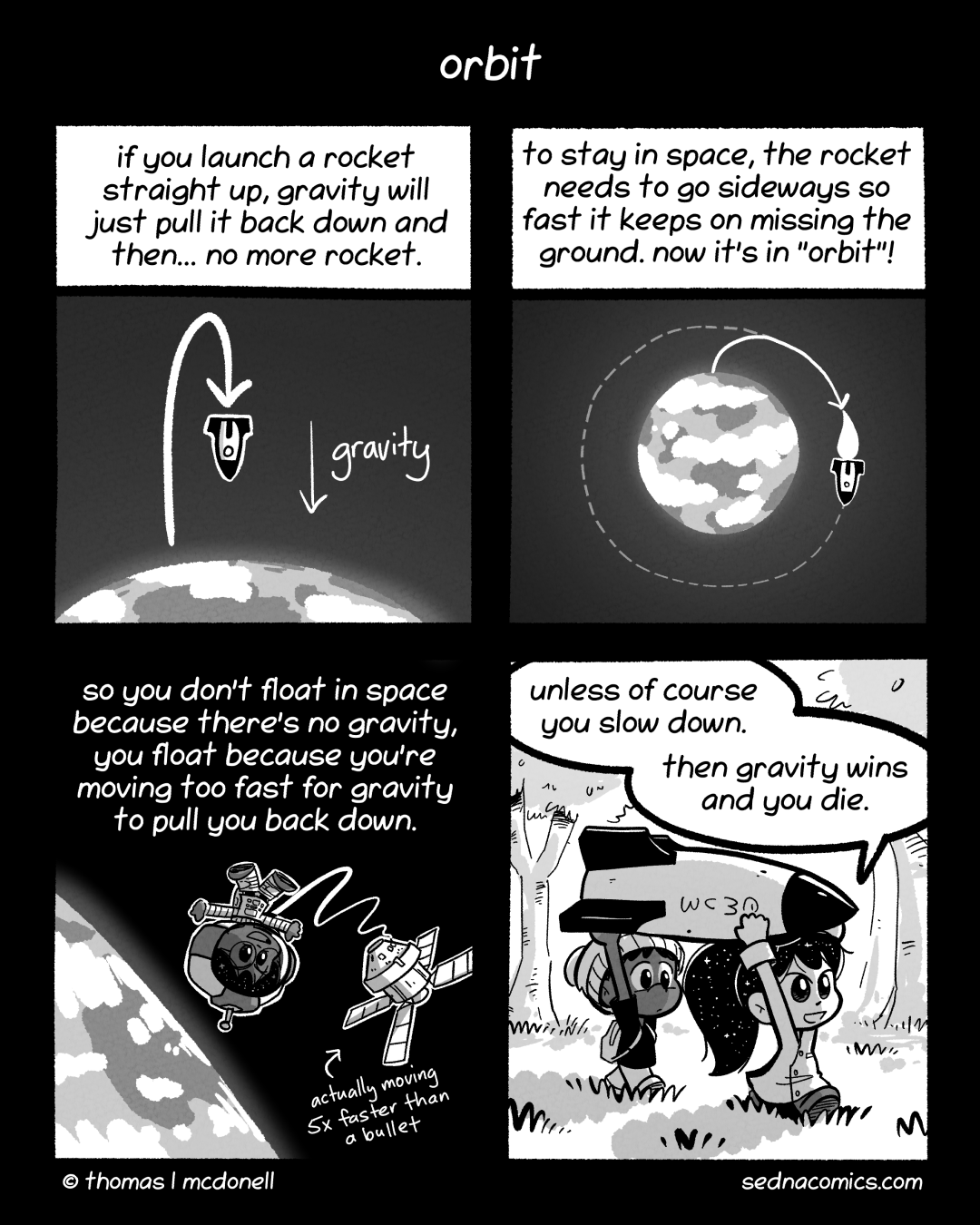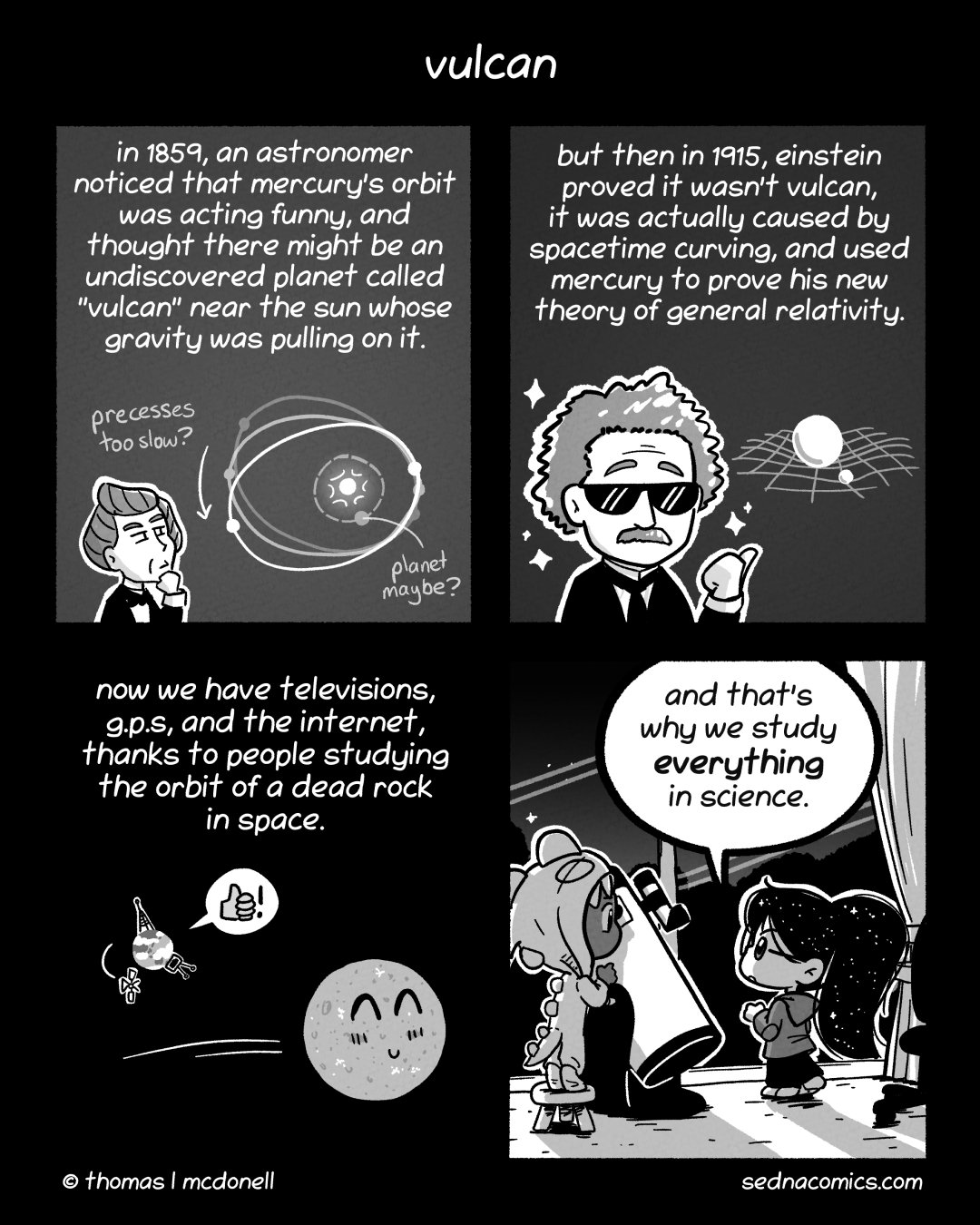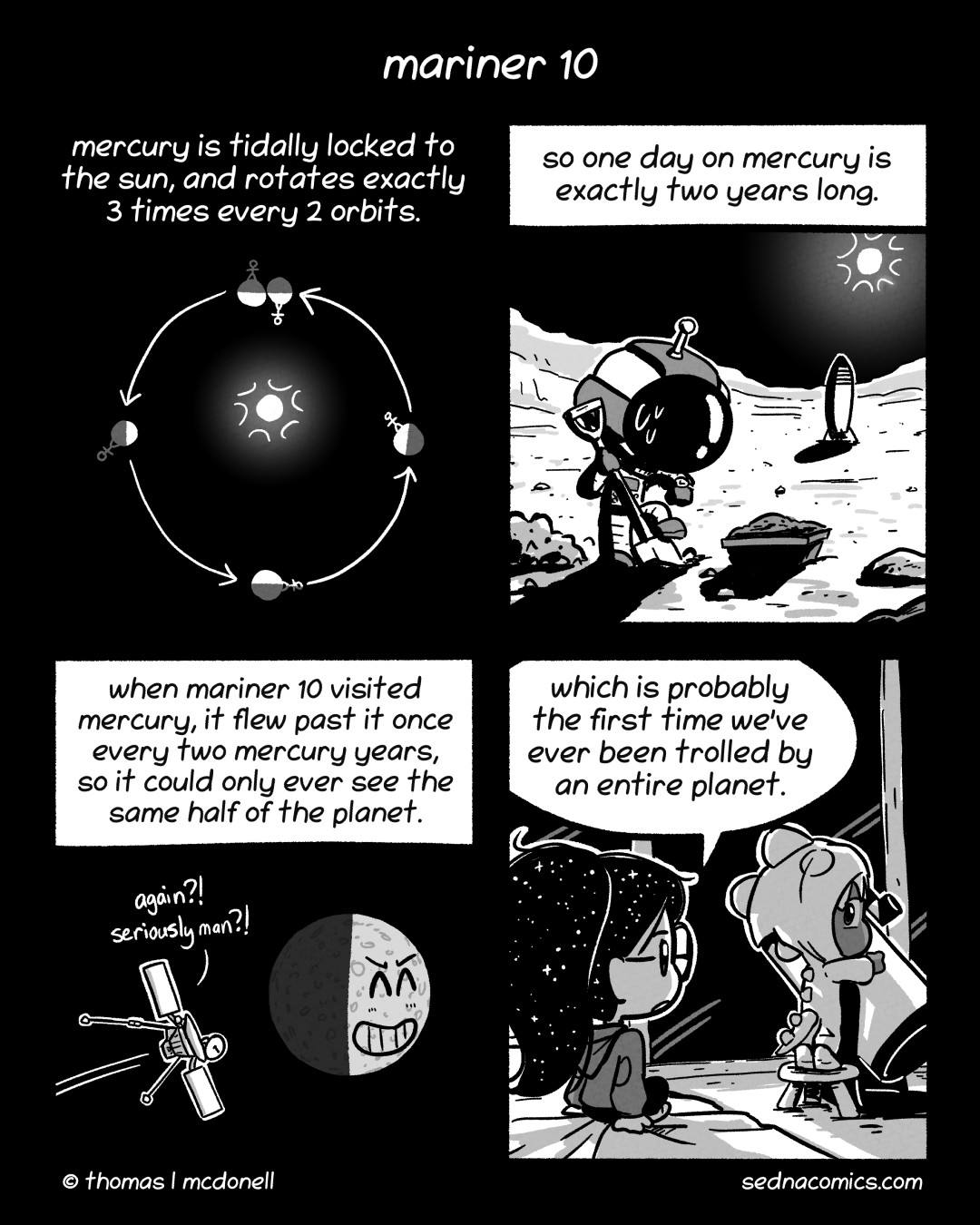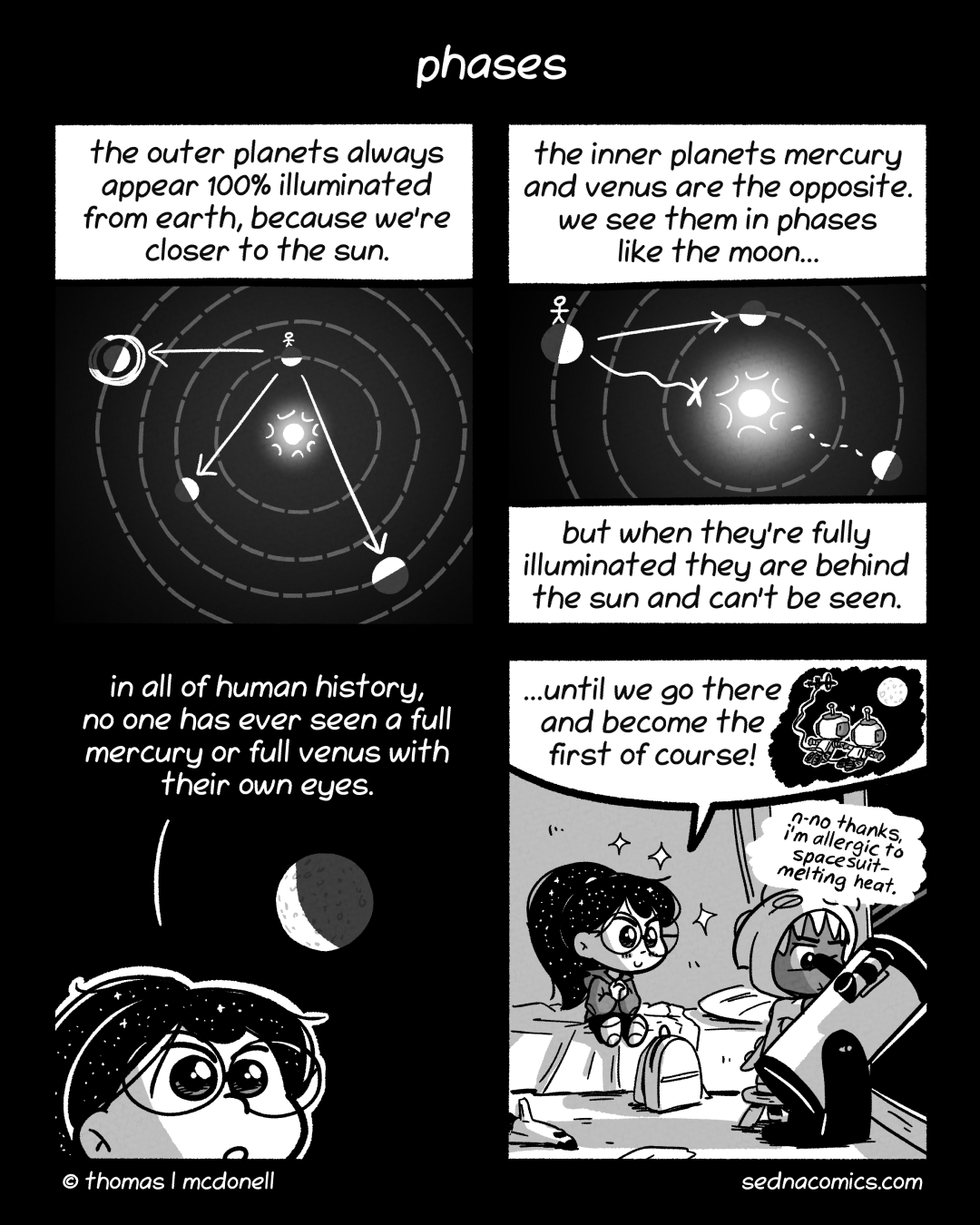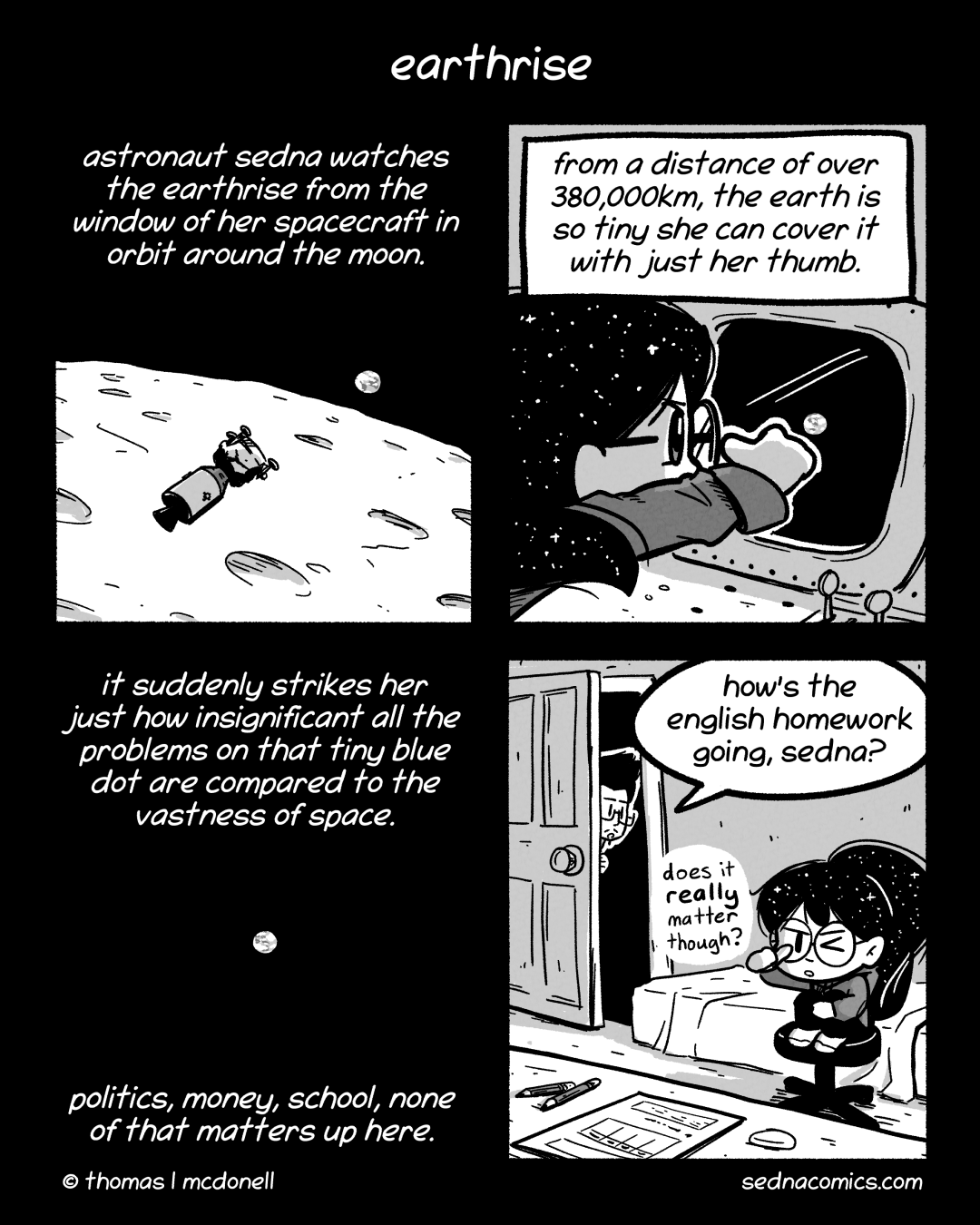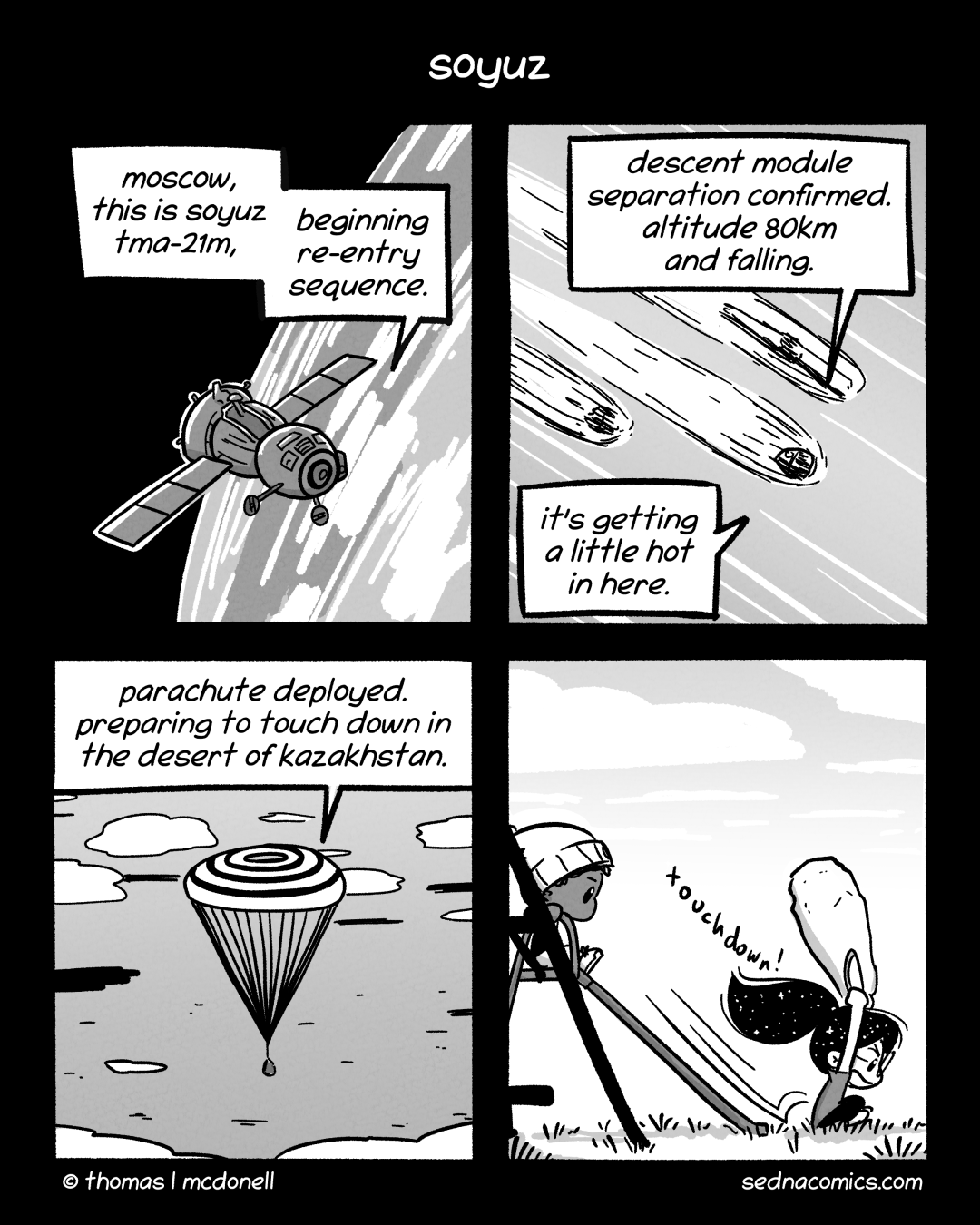despite what some hollywood movies where rockets fly up and miraculously start floating around tell you, almost all spaceships and satellites that stay in space are in an orbit. if you’re not orbiting a planet/moon/star you’re probably either flying away from it, or about to crash into it.
another way to think of this is spaceships don’t experience “zero gravity”, but “zero g-force”. right now you are experiencing 1g of g-force, because gravity is pushing you into the ground. if you jumped into the air you would feel 0g of g-force… until you hit the ground.
a spaceship in orbit never hits the ground, so it constantly experiences 0g. essentially it is falling… forever.

